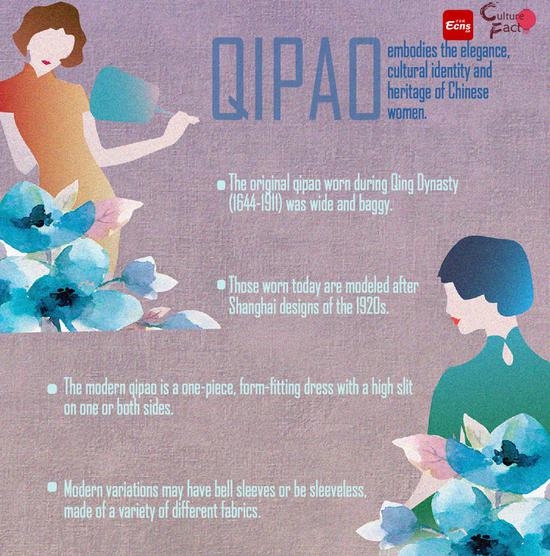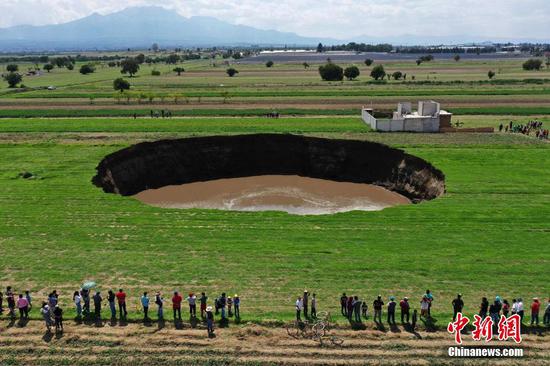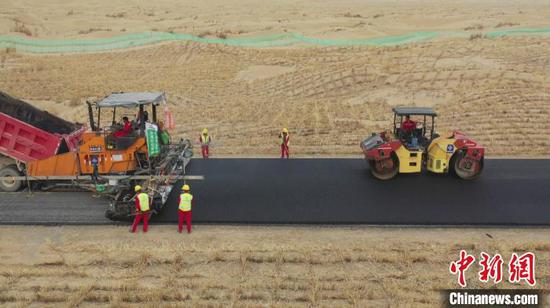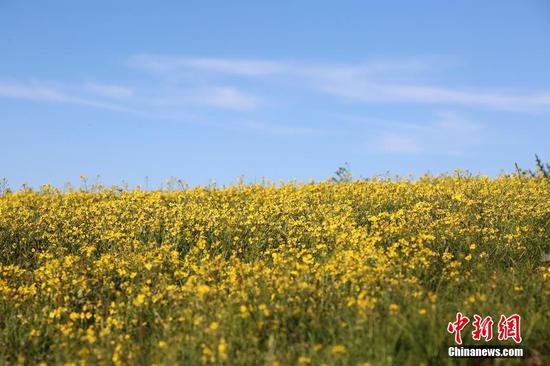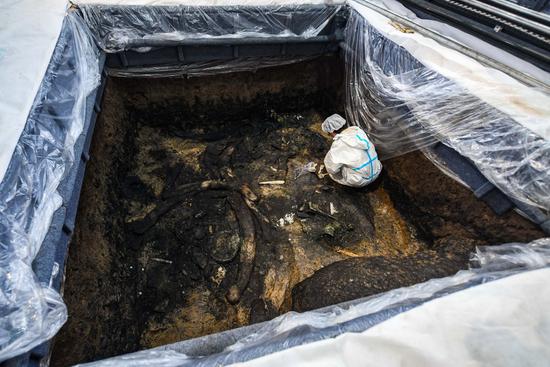
An archeologist cleans up ivory relics found in the No.4 sacrificial pit at Sanxingdui Ruins site in Guanghan, southwest China's Sichuan Province, May 14, 2021. (Xinhua/Wang Xi)
Archaeologists in southwest China's Sichuan Province said Monday that they have discovered six pieces of carbonized bamboo chips that are believed to be part of a bamboo-mud cabin dating back 4,500 years.
The remains are the oldest of their kind found so far on the Chengdu Plain, and were unearthed at the ruins of the Baodun Ancient Town in the provincial capital of Chengdu, according to the Chengdu Cultural Relics and Archaeology Research Institute.
In ancient China, the bamboo-mud style of building was an established form of construction in some areas, but it has never been confirmed as existing on the Chengdu Plain at such an early date.
"The discovery has directly proved the existence of the bamboo-mud wall," said Tang Miao, deputy head of the Baodun project from the institute.
Tens of thousands of pottery pieces have also been excavated at the site, together with dozens of stoneware pieces and the suspected ruins of rice paddies.
The Baodun ruins are the earliest and biggest remains of a pre-historic ancient town found so far by the upper reaches of the Yangtze River. The town is the earliest site of human mass settlement on the Chengdu Plain, as well as being the birthplace of rice-growing civilization on the plain. The ruins have provided vital information for research into the origins of the Sanxingdui civilization.
The Sanxingdui Ruins, considered one of the greatest archeological finds in the 20th century, are believed to be the remnants of the Shu Kingdom, dating back at least 4,800 years and lasting over 2,000 years.














